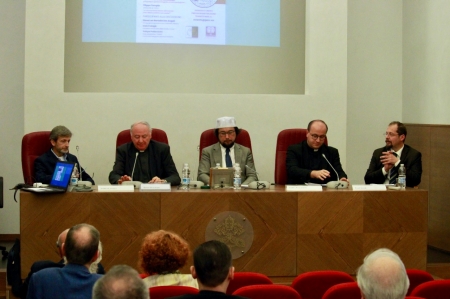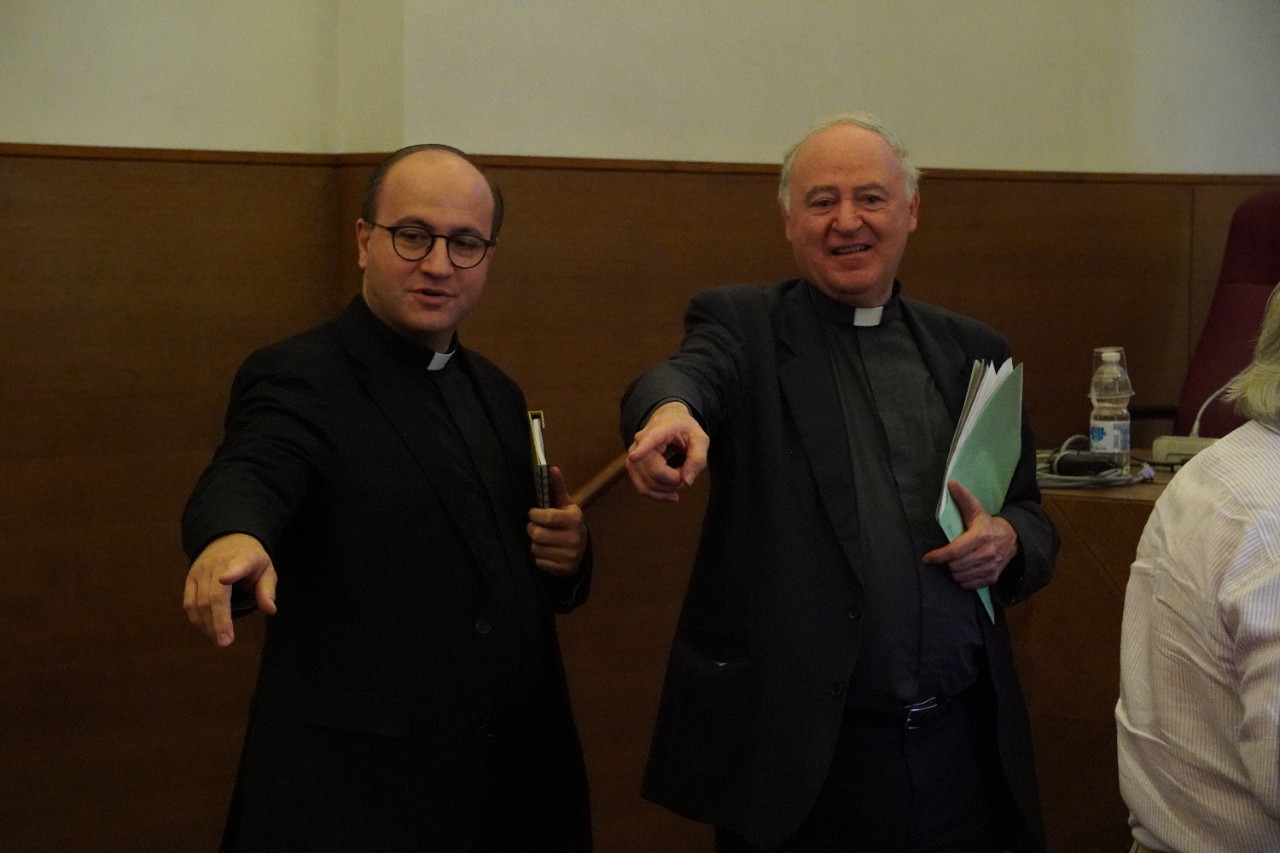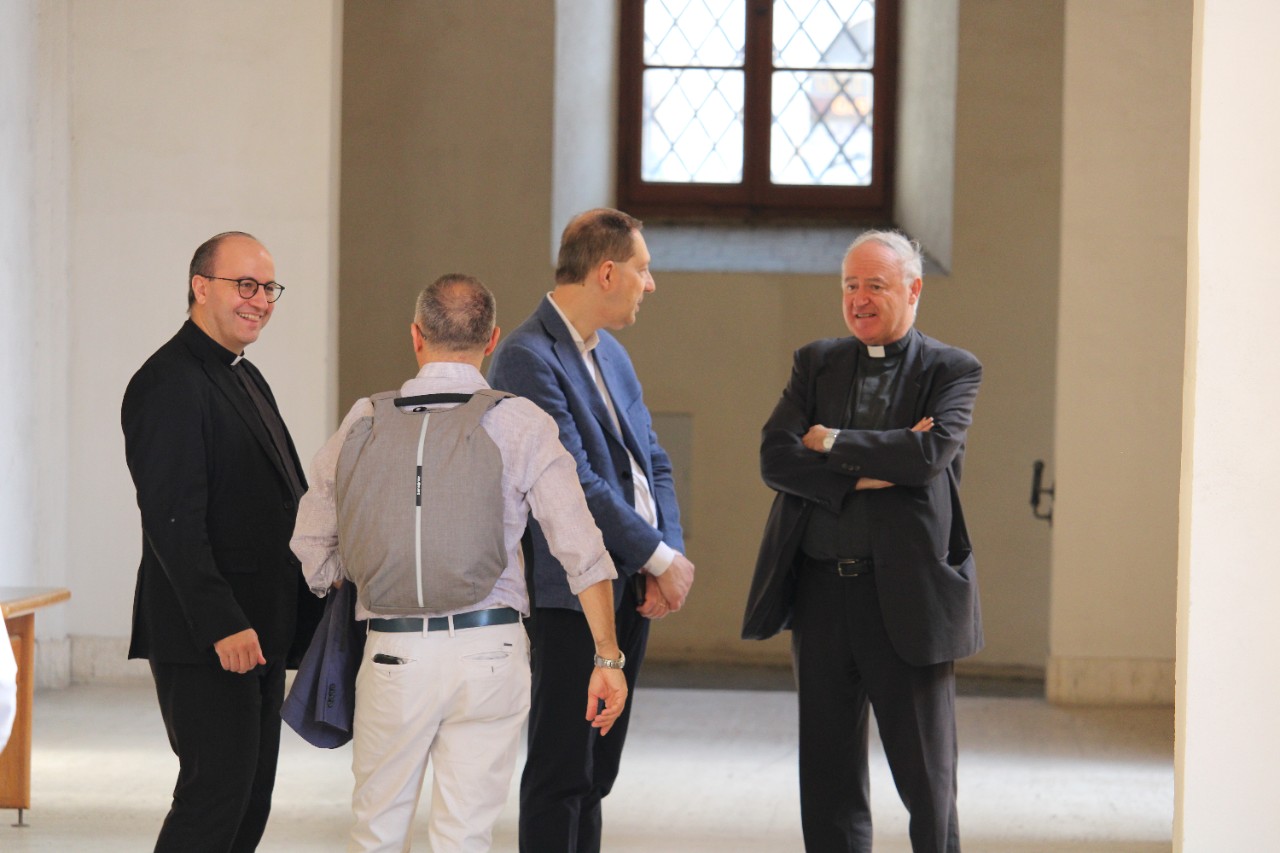Conference on Religion and Neuroscience

On June 8th, 2024, the Pontifical Academy for Life at Piazza San Calisto hosted a conference titled Religion and Neuroscience: What is the Relationship? Renzo Pegoraro and Andrea Lavazza, Chancellor of the Pontifical Academy for Life and Vice-president of SINe at the University of Pavia, respectively, presided over the conference. The diversity in academic backgrounds at the conference gave the discussion a well-rounded breadth of perspectives in science and theology.
Professor Alberto Carrara from Ateneo Pontificio Regina Apostolorum presented a range of topics covering neuroscience and neurotheology. Professor Filippo Tempia from the University of Torino presented on whether neuroscience has proven that free will does not exist. Participants of the discussion included several professionals: Elena Lea Bartolini de Angeli (Hebrew approach), Ivan Colage, and Yahya Pallavicini (Islam approach).
Professor Alberto Carrara explored the link between growing technology and bioethics. With the rise in new technologies such as MindGPT, a Generative AI program that translates mental images onto the computer noninvasively, it is important to discuss where ethics comes into play. As science progresses, new bioethical issues will emerge that range from questions on reproductive health to environmental care to palliative care.
Ethical issues concerning technology should emphasize the preservation of human dignity and spirituality. Professor Carrara discusses the history of neuroscience and religion, highlighting that many well-known neuroscientists have postulated that certain parts of the human brain are connected with prayer and spiritual practices. While theories of a “God-spot” in the brain have long since been rejected, modern scientists conclude that certain parts of the brain activate when a person undergoes spiritual experiences, as seen on fMRI scans.
However, Professor Carrara explains that we must approach topics of neuroscience and medicine with a holistic view of the human person. A body is comprised of the brain, heart, and other organs, but none of these subsystems can completely describe the sentience of a human being. Thus, when it comes to questions on the reality of free will, the whole person must be considered, not just the brain itself.
Professor Tempia complements Professor Carrara’s argument with the point that neuroscientists and researchers generally assume that the mind is equal to only the brain and, thus, the properties of the brain. However, consciousness is a complex concept, and many modern experiments on free will and choice make unfair assumptions about perception, time, and the mind.
This conference acted as an exploration of religion and neuroscience within the context of human spirituality and inherhent dignity. As technology and neuroscience continue to evolve, it will be necessary to consider the ethical implications of research and scientific development. Furthermore, the traditional theological teachings of religion allow a basis for discussion of new and everchanging biotechnology and its ethical implications.
(Summary by Grace Karmazin-Schneider, University of Notre Dame Rome)





